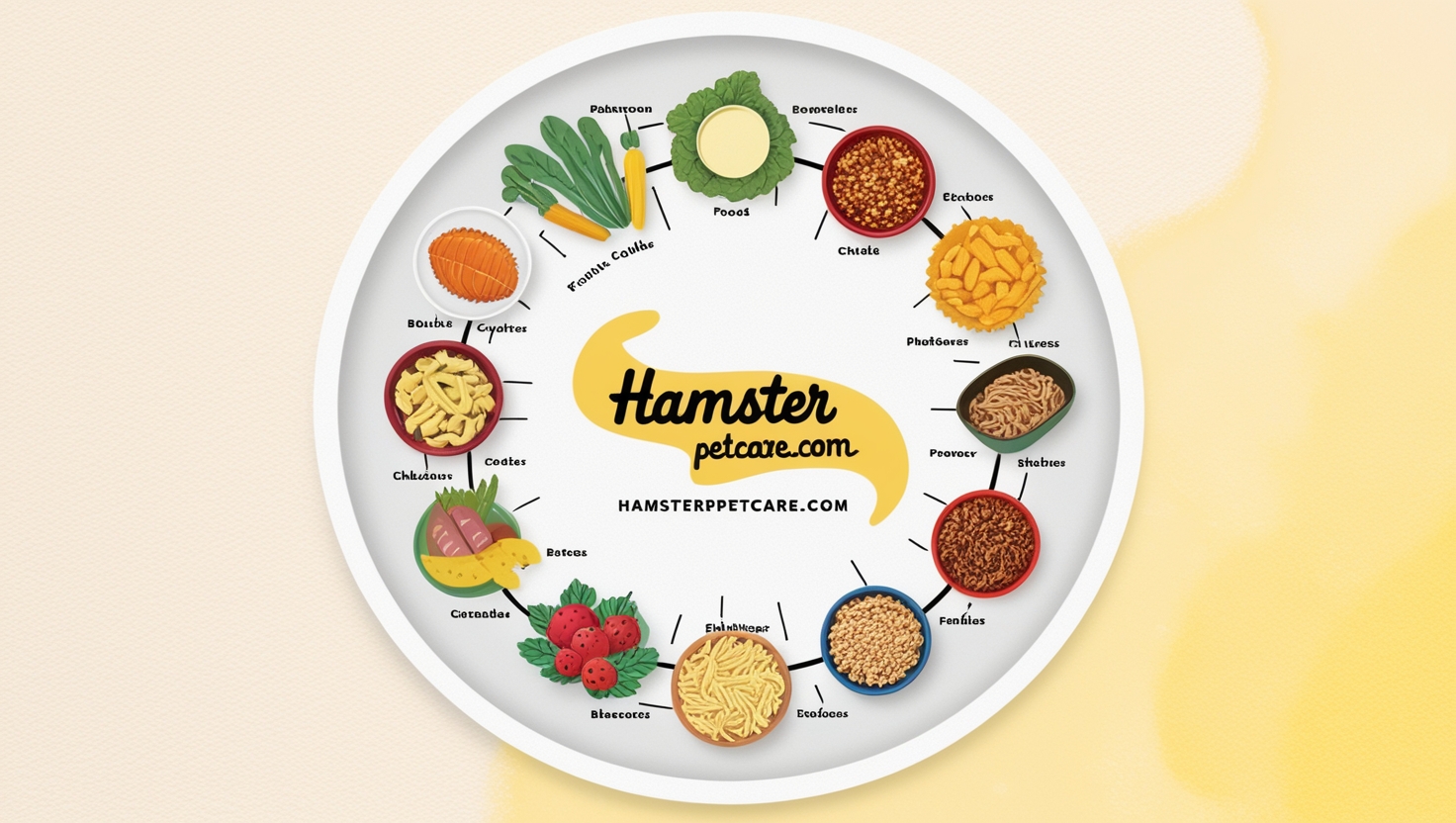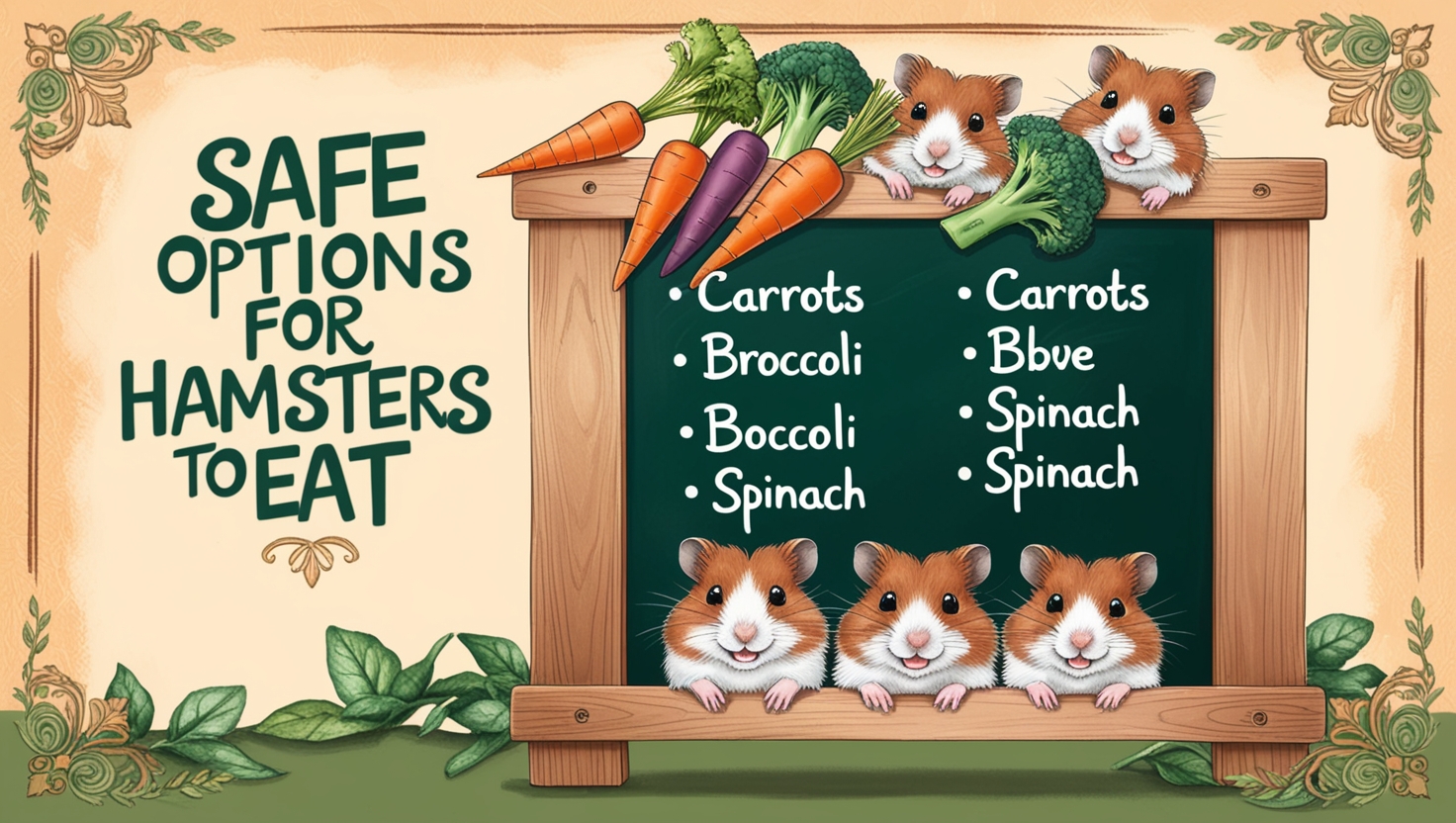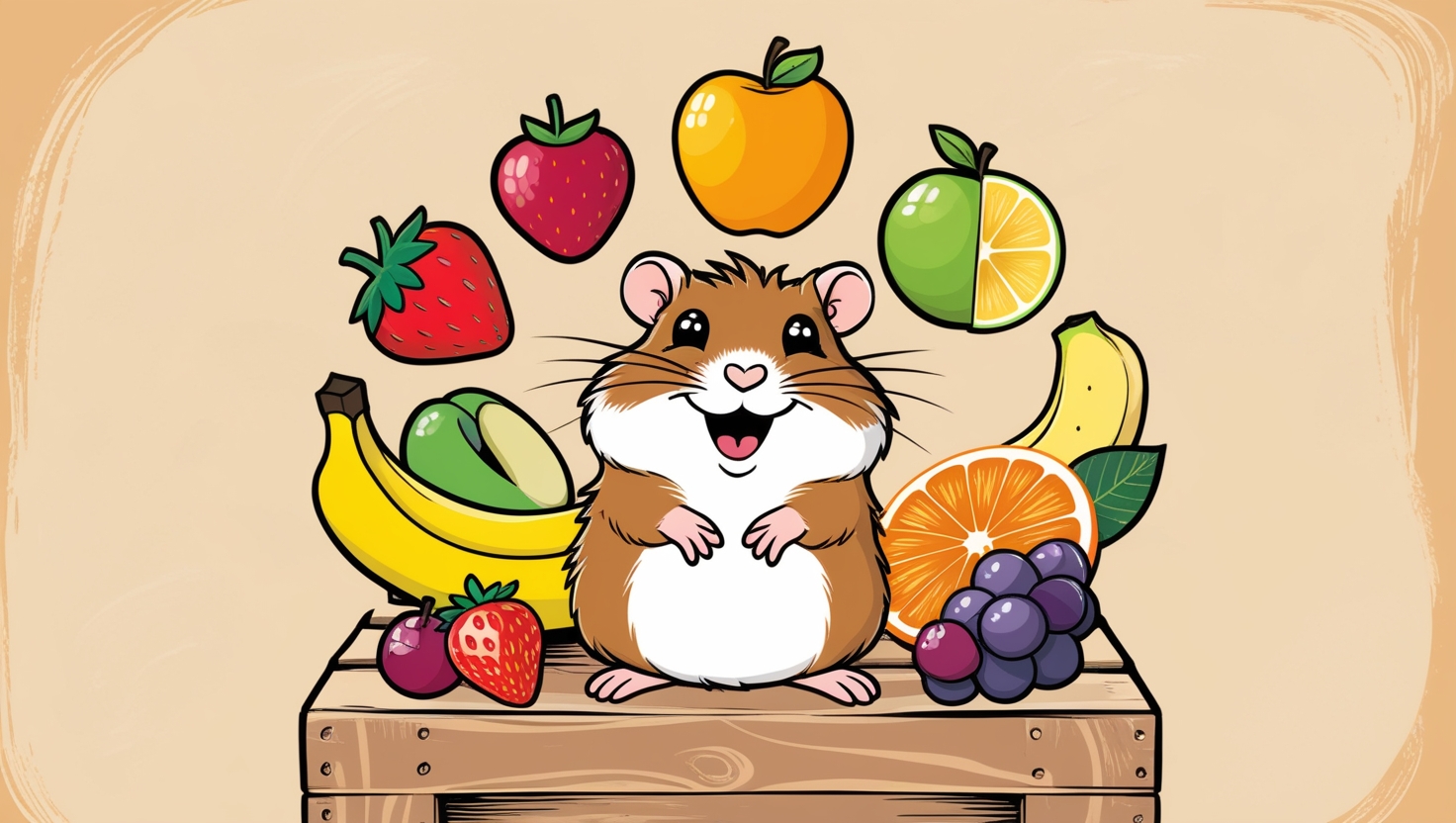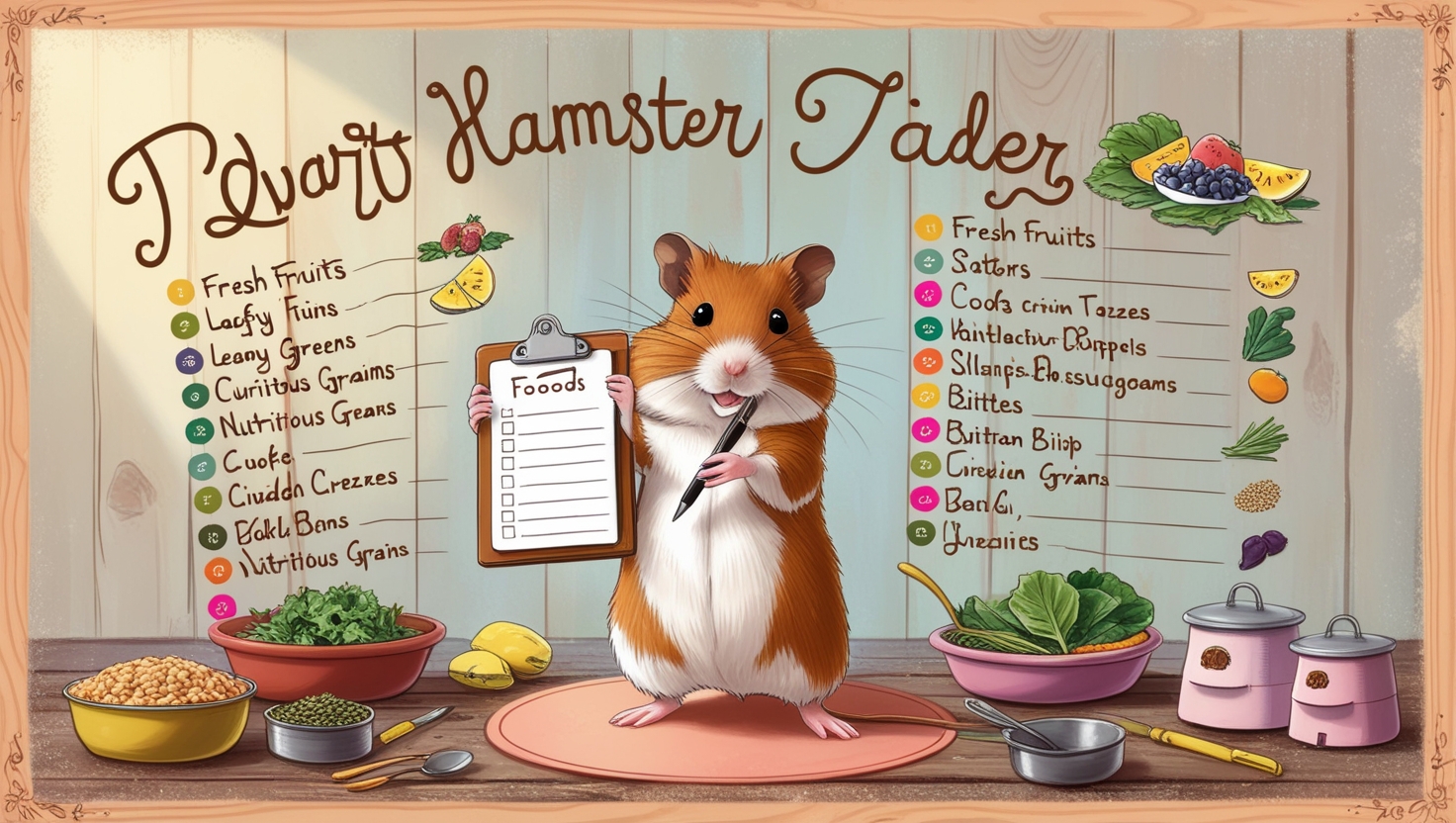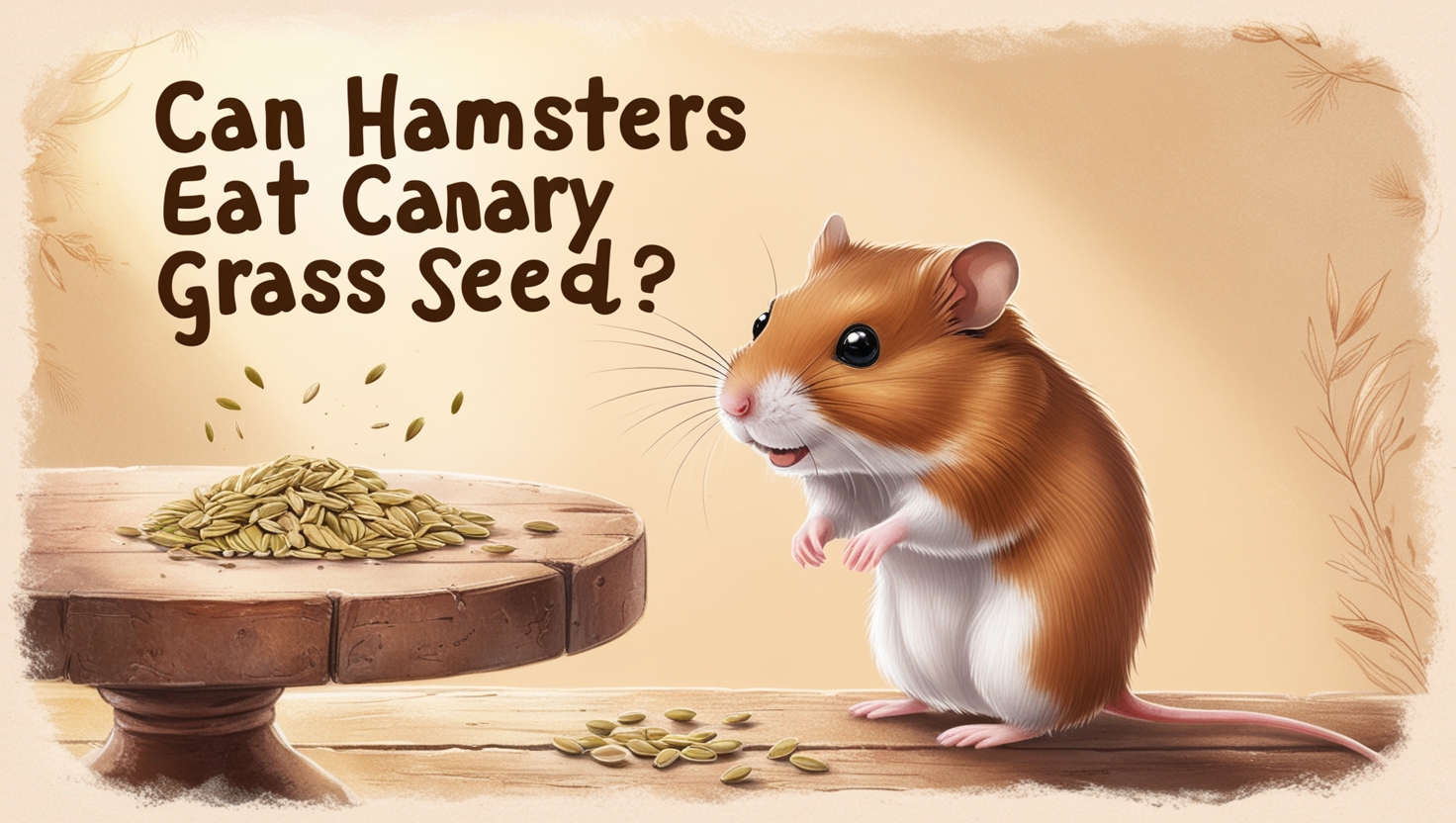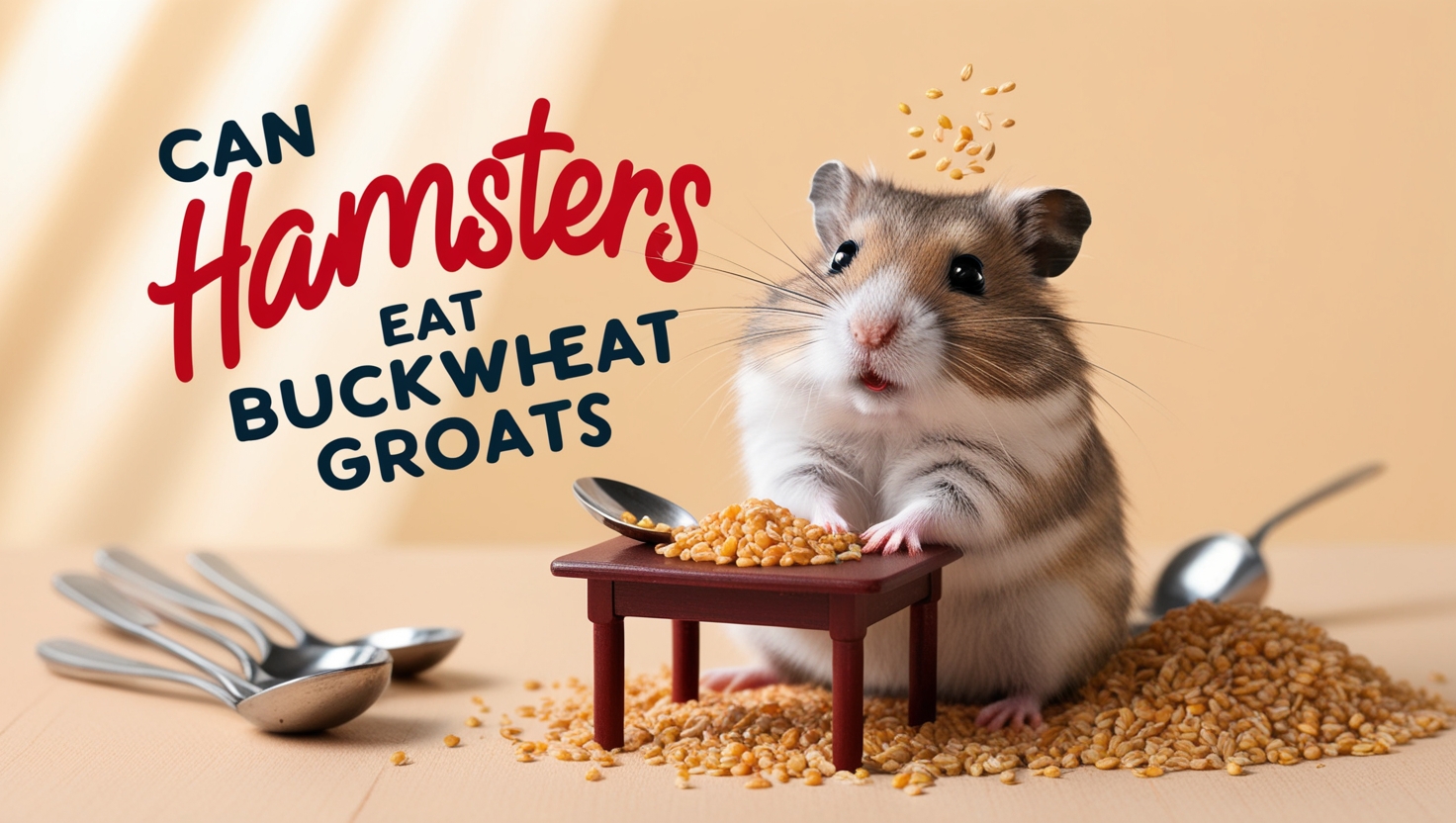Can Hamsters Eat Meat? Hamsters are small rodents belonging to subfamily of Crivetinae. This subfamily includes several species, classified in different genera.
Since they are easily adapted and easy to maintain, hamsters are often taken as pets. They are extremely popular in recent years and are certainly present as pets in the same number as cats and dogs. Hamsters are curious, playful and smart, so you should not have any difficulties in domestication.
This cute little mouse captivates its owners with its sweetness and intelligence. It loves to play and cuddle, but be careful and do not provoke it. Hamster can be a little aggressive if irritated and it can give you a bite of warning. Treat your new friend gently and with care and you’ll have satisfied and healthy pet. Hamsters do not need particularly complicated treatment or conditions. Make sure it has enough space in its cage and something to play. Place running wheel into its home, so your pet can be active during the night, since it is nocturnal being. They love to play and they need activity, since all hamsters tend to obesity.
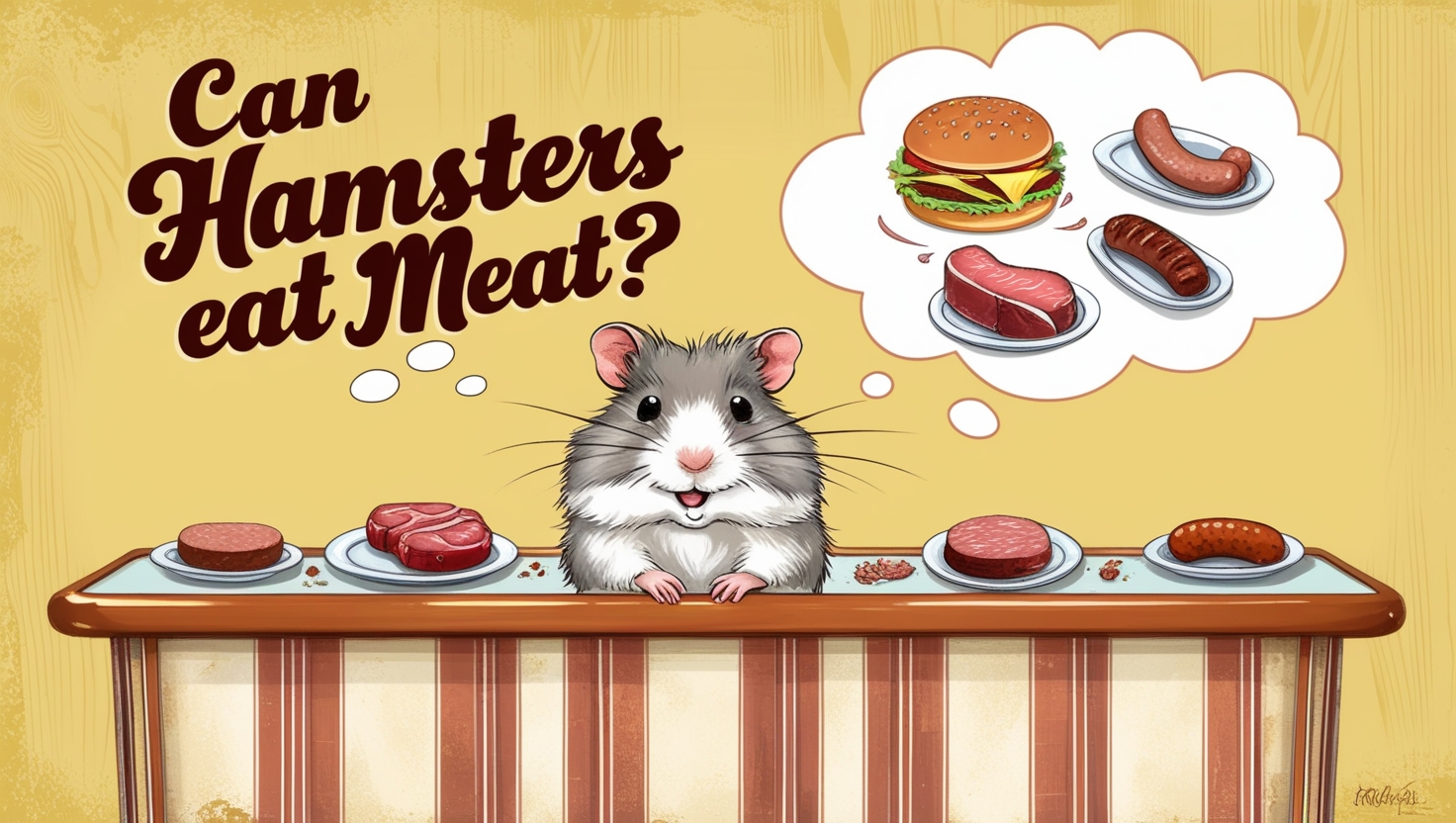
Can Hamsters Eat Meat?
Can Hamsters Eat Meat?
Hamsters are primarily herbivores, which means their diet mainly consists of fruits, vegetables, seeds, and grains. However, in the wild, they may occasionally consume insects or small amounts of meat. This behavior is instinctual and serves as a source of protein when other food options are scarce. In a controlled pet environment, though, it’s essential to maintain a diet that replicates their natural food sources as closely as possible. Therefore, while hamsters can technically eat meat, it should not be a regular part of their diet.
Meat Nutrition
The nutritional content of meat can vary depending on the type of meat and how it’s prepared. Here’s a general overview of the nutritional components you can find in meat, particularly in common meats like beef, chicken, and pork:
1. Protein: Meat is an excellent source of high-quality protein, which is essential for muscle development and repair. A 3.5-ounce (100-gram) serving of cooked beef typically contains around 26-27 grams of protein.
2. Vitamins: Meat is rich in various vitamins, including:
- Vitamin B12: This vitamin is vital for red blood cell formation and neurological function. Meat, particularly beef and lamb, is an excellent source of vitamin B12.
- Niacin (Vitamin B3): It plays a role in energy metabolism and skin health. Chicken and turkey are good sources of niacin.
- Vitamin B6: Meat contains vitamin B6, which is important for brain development and function.
- Vitamin D: Fatty fish like salmon and mackerel are known for their vitamin D content, but meat, especially beef liver, contains some vitamin D as well.
3. Minerals: Meat is a source of essential minerals, including:
- Iron: Particularly found in red meats, iron is essential for oxygen transport in the blood.
- Zinc: Zinc is important for immune function and wound healing. Meat, especially beef and pork, is a good source of zinc.
- Selenium: This mineral acts as an antioxidant and is involved in thyroid function. Chicken and turkey are good sources of selenium.
4. Fats: Meat can contain varying amounts of fat, depending on the cut and preparation method. Lean cuts of meat have lower fat content, while fatty cuts like bacon have higher fat levels. Some fats in meat are saturated, while others are unsaturated.
5. Calories: Meat is a calorie-dense food, with the calorie content varying depending on the type of meat and how it’s cooked. Lean cuts generally have fewer calories than fatty cuts.
6. Cholesterol: Meat, especially red meat, can contain cholesterol. It’s worth noting that the cholesterol content in meat is mainly found in the fatty portions.
It’s essential to consume meat in moderation as part of a balanced diet. While meat provides essential nutrients, overconsumption of red and processed meats has been associated with certain health risks, such as an increased risk of heart disease and some types of cancer. Therefore, it’s advisable to choose lean cuts of meat, trim visible fat, and incorporate a variety of protein sources into your diet, including plant-based options like beans, lentils, and tofu, to maintain a healthy and balanced nutritional intake.
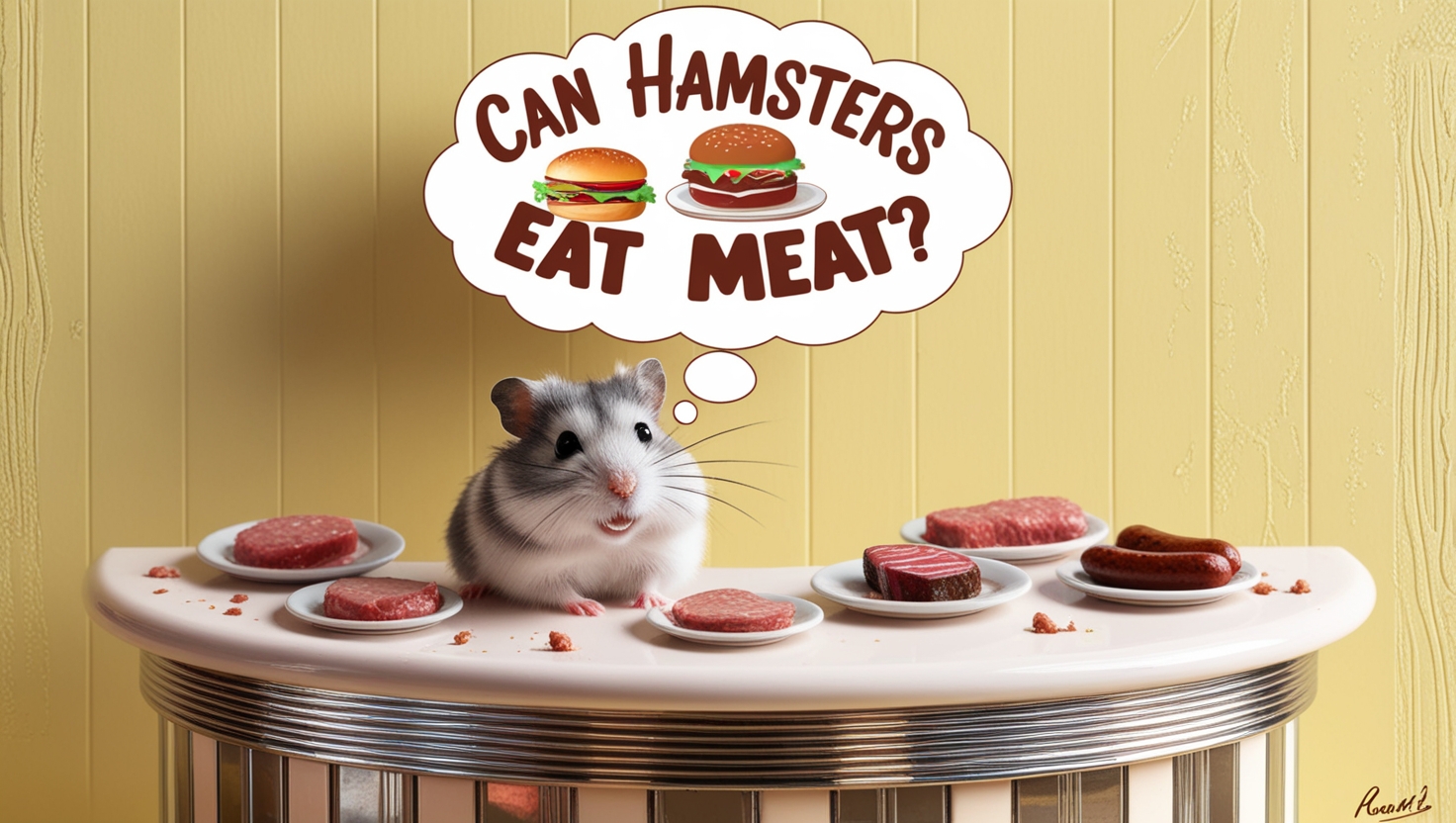
Understanding Hamster Nutrition
To better understand why meat should be an occasional treat rather than a staple, let’s delve into hamster nutrition. Hamsters require a balanced diet to stay healthy and thrive. Their nutritional needs include:
- Protein: Hamsters do need protein for muscle development and overall health. However, they can obtain sufficient protein from plant-based sources like seeds and legumes.
- Fiber: A high-fiber diet is crucial for hamsters’ digestion. Vegetables, hay, and grains are excellent sources of fiber.
- Vitamins and Minerals: Fruits and vegetables provide essential vitamins and minerals that keep your hamster in top shape.
- Water: Like all living beings, hamsters need access to clean, fresh water at all times.
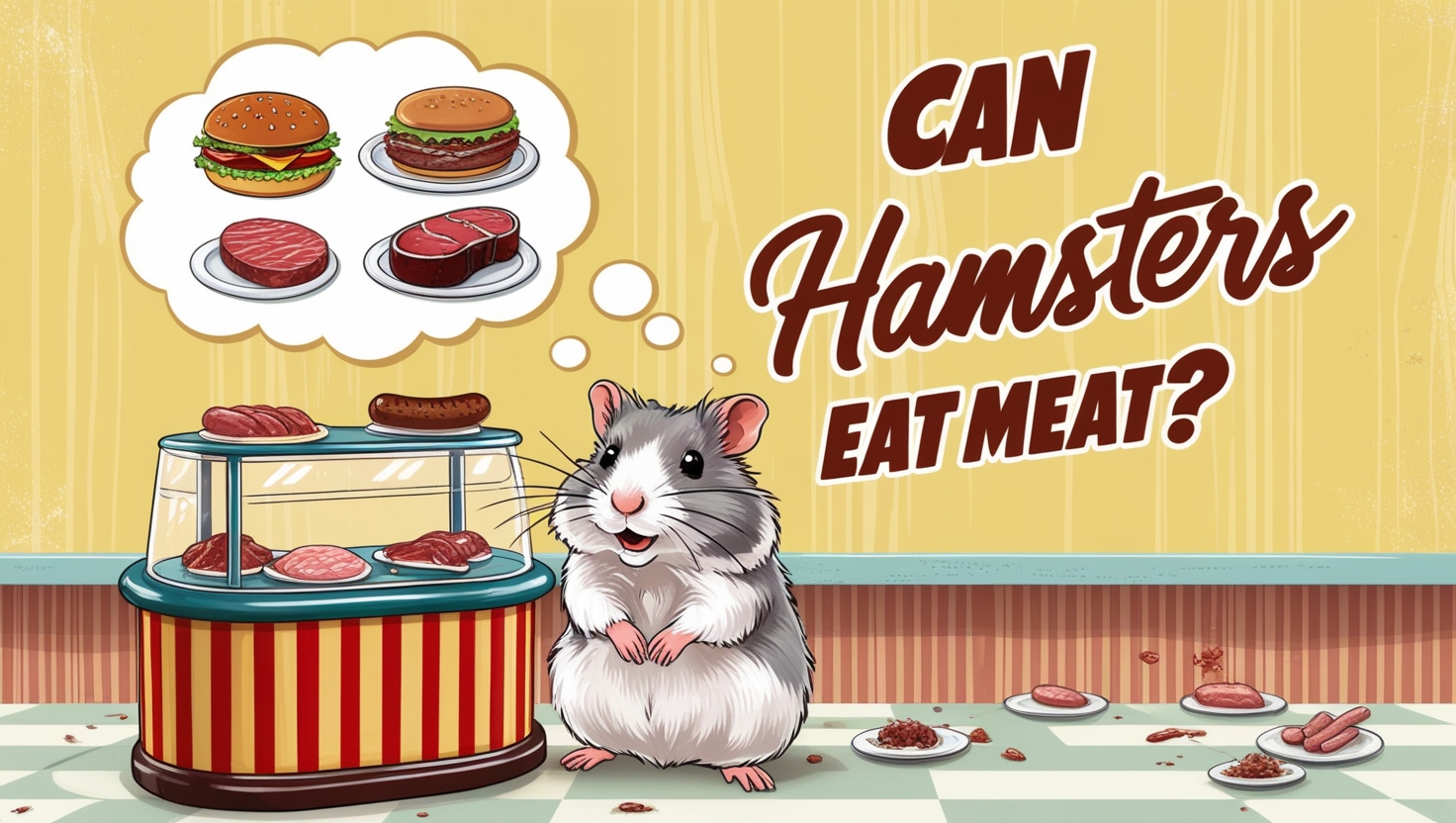
The Risks of Feeding Meat to Hamsters
Feeding hamsters meat can pose some risks:
- Digestive Issues: Hamsters have sensitive digestive systems, and meat can be challenging for them to digest, leading to stomach problems.
- Obesity: Meat is often high in fat. Overfeeding your hamster with fatty foods can lead to obesity, which can have severe health consequences.
- Nutritional Imbalance: Providing too much meat may cause your hamster to miss out on the essential nutrients they need from their regular diet.
How to feed a hamster?
Hamsters are omnivores and they are very diverse in terms of diet. Therefore, their nutrition is pretty simple. Basic food for hamsters are grains, which you can purchase in form of already made mixtures in any pet store or you could mix it yourself. Add two to three hazelnuts or walnuts a day, to enrich your pet’s diet. Fresh fruit and vegetable is also recommended. You should give it as a treat, several times a week. Too much wet food could disturb their sensitive bellies and digestion and lead to stomach problems. On the other hand, too much sugar from fruit can lead to diabetes and obesity.
Since hamsters do eat almost everything, their diet should include some animal origin proteins once in a while. A boiled egg or small amount of chicken meat can be beneficial to their health in general.
Hamsters carnivores
So, yes, hamsters can eat meat. In fact, it is advised to occasionally feed your pet a small portion of cooked chicken.
Besides chicken, cooked beef and canned dog food which contains meat can also safely be given to hamsters. The only thing you should worry about is that meat should be unseasoned. Never give your hamster salted or spiced meat, in any form.
Pork should be avoided. There are different opinions on this matter, since some owners experienced problems and others have not.
However, there is a variety of other food you can freely choose to feed your pet. The best advice is to simply dismiss pork as an option.
Cannibal hamsters
There are horror stories about hamsters’ cannibalism, sometimes connected with placing meat on their menu.
However, this phenomenon is not triggered by adding meat to hamster’s diet. It sometimes happens hamster eats its young or kill and eat other hamsters if they are unhealthy or if there is not enough food and space for all. So, it is a natural survival chain and it has nothing to do with the nutrition.
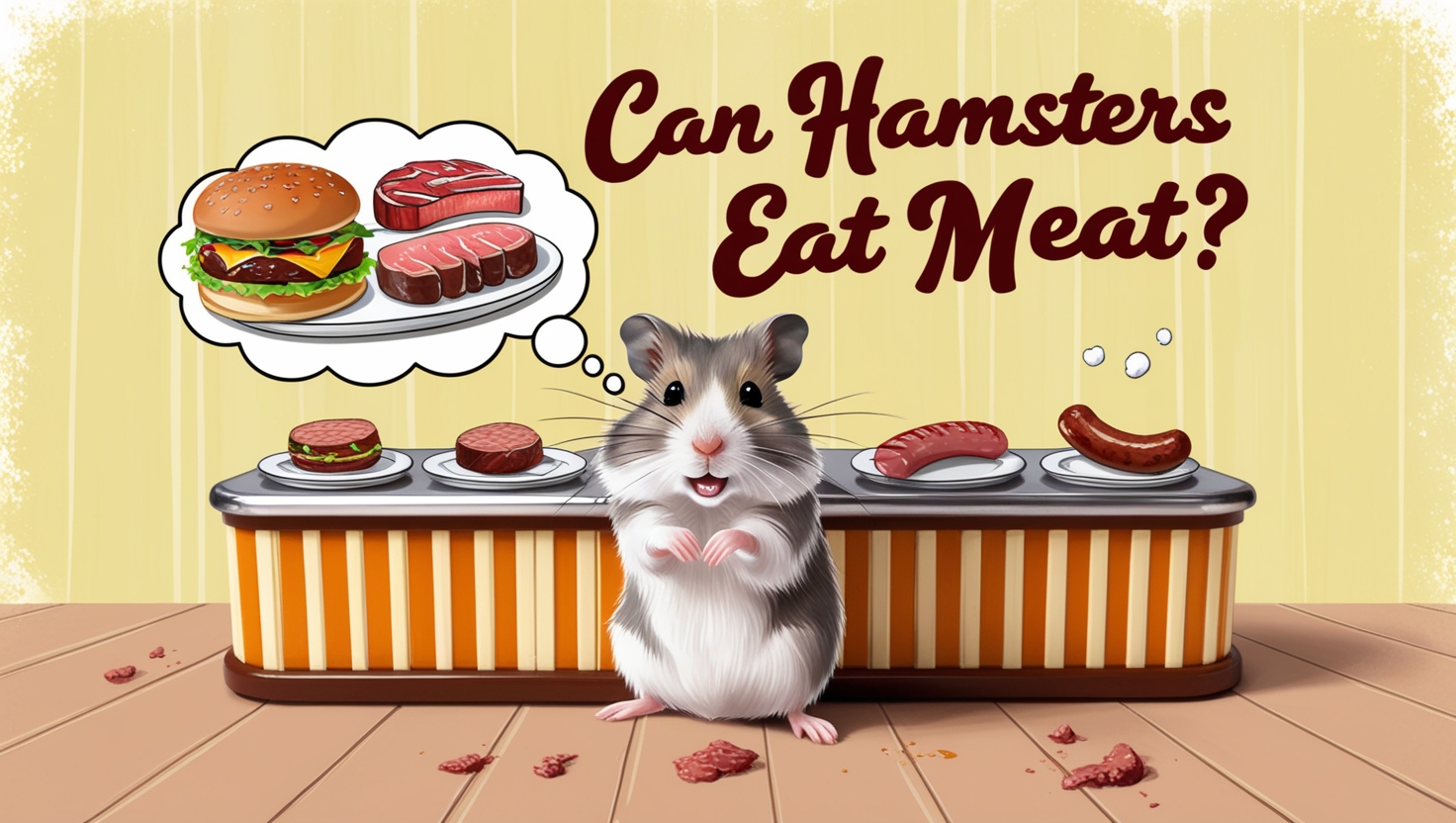
Conclusion
In conclusion, while hamsters can eat meat, it should be offered sparingly and with caution. Their primary diet should consist of fruits, vegetables, seeds, and grains to ensure they receive the right balance of nutrients. Always prioritize their well-being, and consult with a veterinarian if you have any concerns about your hamster’s diet or health. By providing a balanced and nutritious diet, you can help your furry friend live a happy and healthy life.
Remember, your hamster’s health is in your hands, so make informed choices about their diet and overall care. Now that you have a better understanding of whether hamsters can eat meat, you can continue to be a responsible and caring pet owner.
FAQs
Can hamsters eat cooked meat?
It’s best to avoid cooked meat as it can be tough and difficult for hamsters to chew. If you choose to offer meat, make sure it’s in small, manageable pieces.
What type of meat is safe for hamsters?
If you decide to give your hamster meat, opt for lean, unseasoned options like plain chicken or turkey. Avoid processed or heavily seasoned meats.
How often can I feed meat to my hamster?
Meat should be an occasional treat, no more than once a week. Always monitor your hamster’s reactions and adjust accordingly.
Are there any meats that are toxic to hamsters?
Yes, avoid giving your hamster pork or any cured meats, as they can contain harmful preservatives.
Can hamsters eat insects?
Insects like mealworms and crickets are a more natural source of protein for hamsters and can be given occasionally.
What is the best way to introduce meat to my hamster’s diet?
Start with tiny amounts and observe how your hamster reacts. If they enjoy it and don’t experience digestive issues, you can continue in moderation.


 (1 votes, average: 4.00 out of 5)
(1 votes, average: 4.00 out of 5)